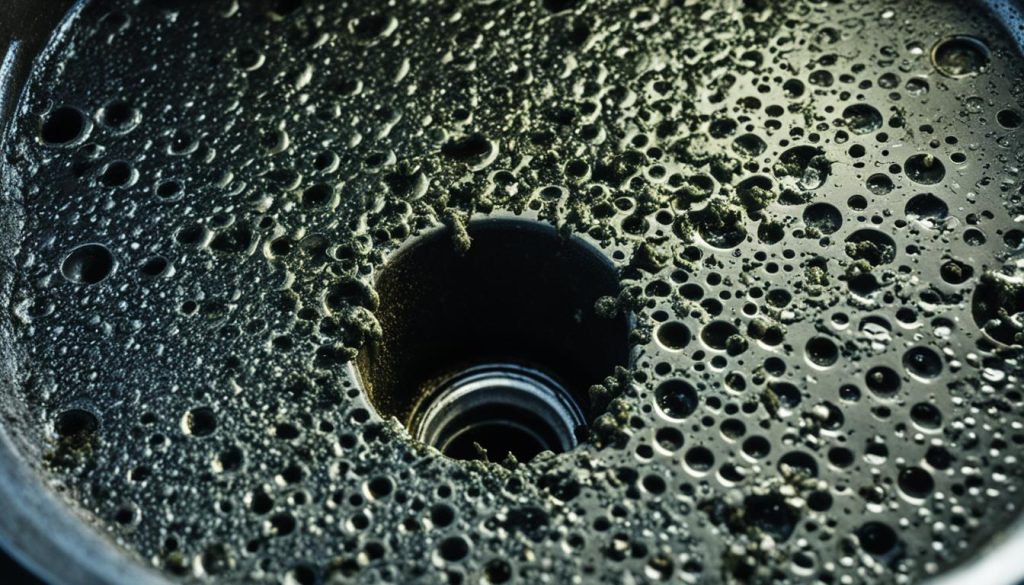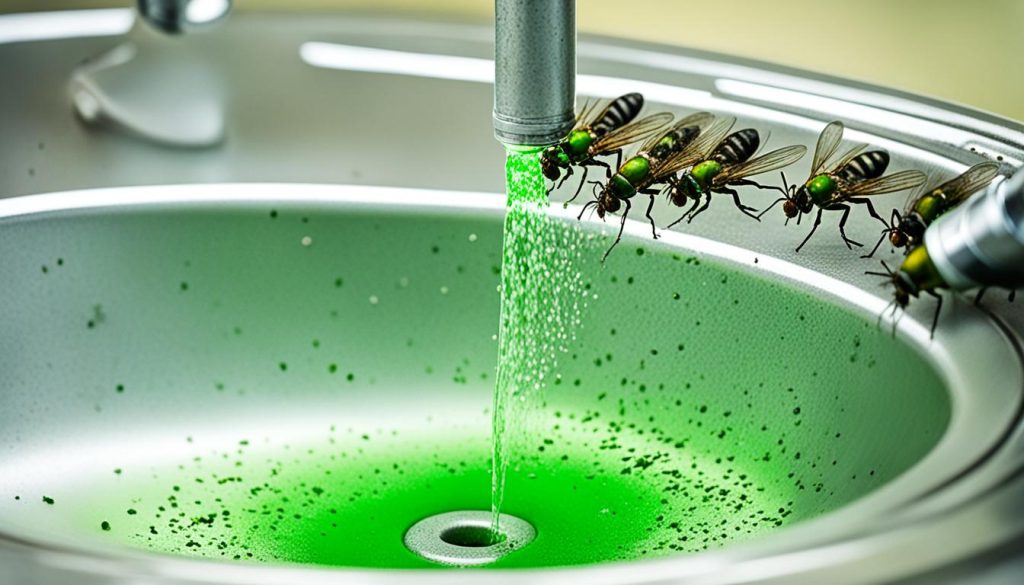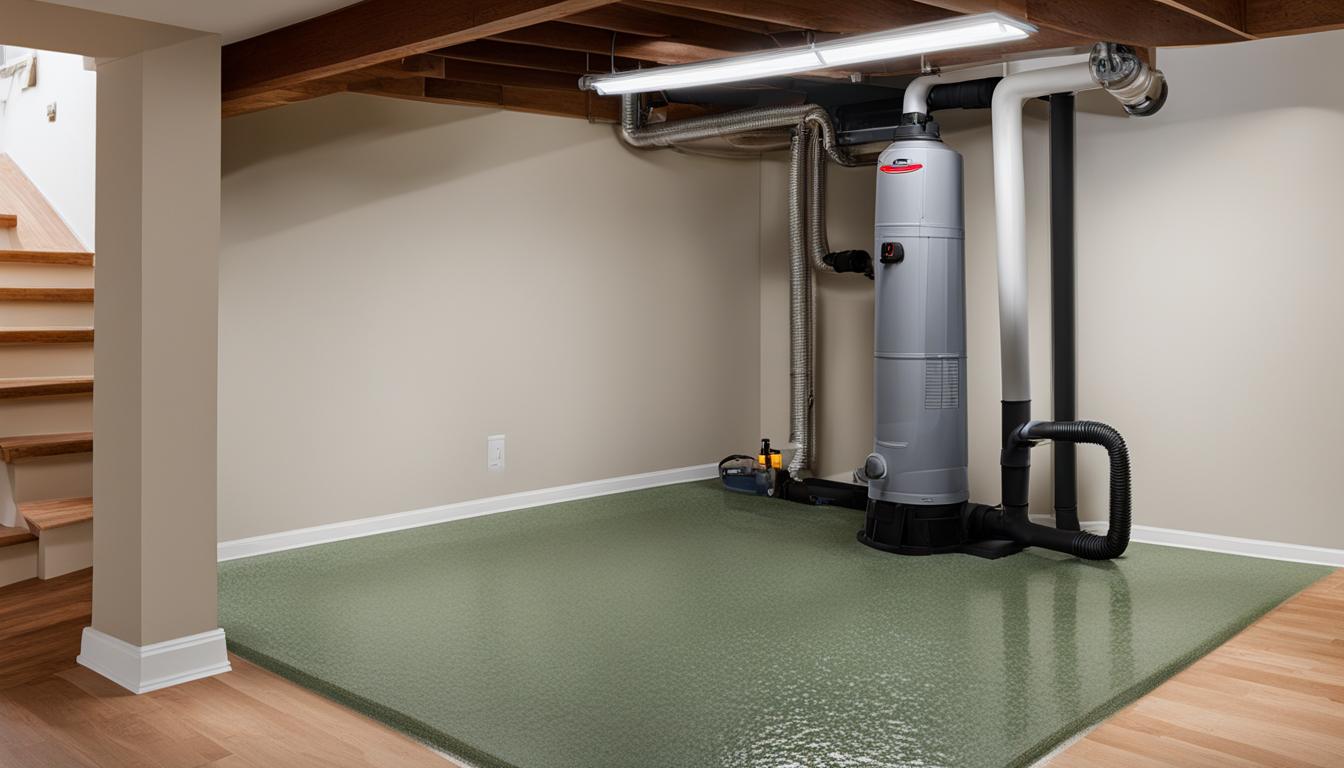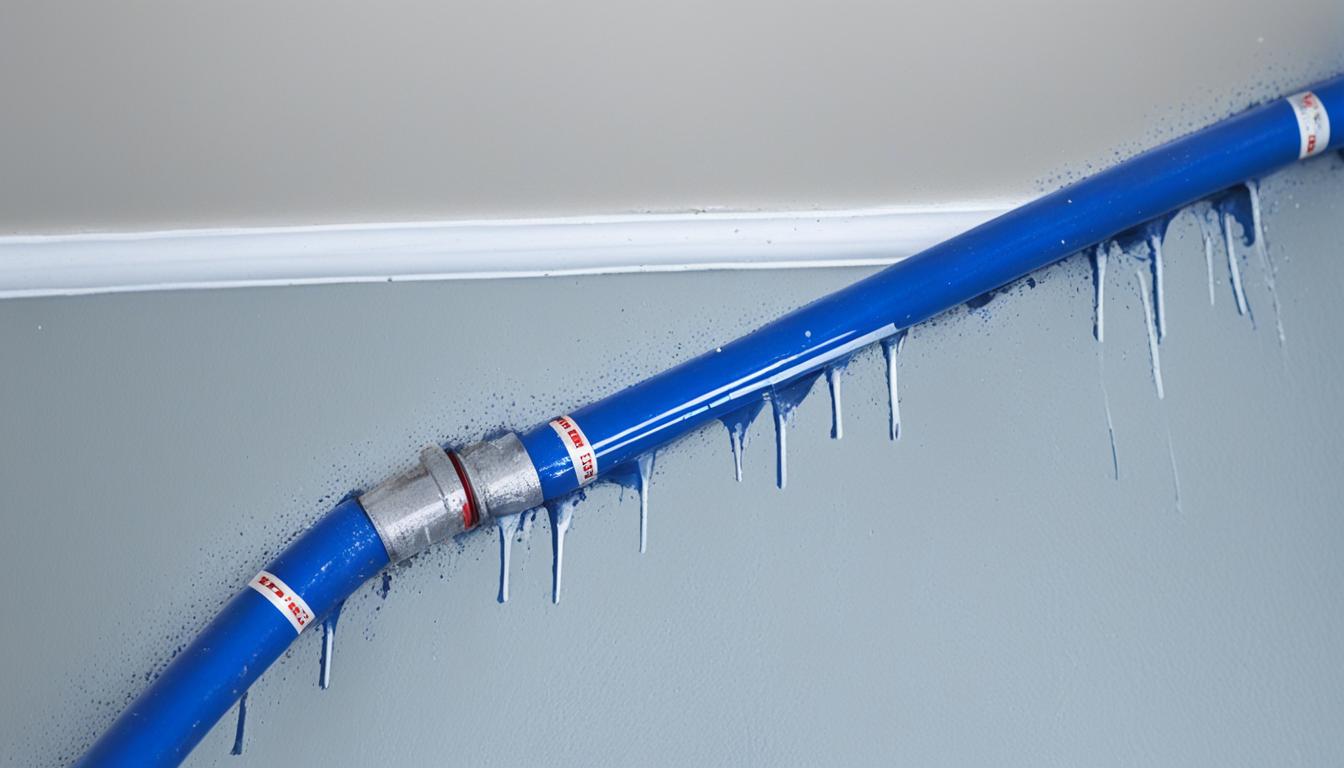Banish Odors: Freshen Up Smelly Sink Drain Now
Did you know that a foul odor emanating from your kitchen sink can impact more than just your nose? It can also affect the overall cleanliness and freshness of your kitchen, making it an unwelcome environment for cooking and entertaining. The musty drain smell, unpleasant drain scent, and bad sink aroma can linger and create an unpleasant experience for anyone using the sink. But don’t worry, there are easy and practical steps you can take to freshen up your smelly sink drain and eliminate those pesky odors once and for all.
Key Takeaways:
- Smelly sink drains can be a nuisance, affecting the overall freshness and cleanliness of your kitchen.
- By taking simple DIY steps to clean and freshen your sink drain, you can eliminate unpleasant odors.
- Baking soda and vinegar are effective ingredients for breaking down grease and eliminating foul smells.
- Additional tips, such as using disinfectant or grinding lemons in the garbage disposal, can help maintain a fresh-smelling sink drain.
- Maintenance tools like drain snakes, cleaning brushes, and plungers can prevent clogs and keep your sink drain odor-free.
Why Does Your Sink Drain Smell?
If you’re dealing with a smelly sink drain, you’re likely wondering why it smells so bad. The main culprit behind foul odors in sink drains is the buildup of food particles, grease, hair, and other debris that accumulate in the pipes over time. As these substances decompose, they create a musty drain smell and attract bacteria, causing an unpleasant drain scent to waft through your kitchen.
Ignoring the issue of a smelly sink drain can lead to more than just an unpleasant aroma. The buildup can eventually cause clogs, making it difficult for water to flow through the pipes and exacerbating the problem.
The Culprits Behind Smelly Sink Drains
To better understand the factors contributing to the bad sink aroma, let’s take a closer look at the main offenders:
- Food Particles: Leftover food scraps that get washed down the sink can accumulate and decompose in your pipes, causing a smelly sink drain.
- Grease: Pouring grease down the drain can lead to a sticky buildup that traps food particles and creates a foul odor.
- Hair: Hair can easily get caught in the drain and mix with other debris, resulting in a musty drain smell.
To get rid of a sink drain odor, it’s crucial to address these causes and remove the buildup. In the next section, I’ll share easy DIY methods to freshen up your smelly sink drain and banish the unpleasant scent.
Easy DIY Methods to Freshen Your Sink Drain
If you’re dealing with a smelly sink drain, don’t worry! There are simple and effective DIY methods you can use to freshen it up and eliminate foul odors. One popular technique involves using baking soda and white vinegar.
Here’s how you can do it:
- Pour half a cup of baking soda down the drain.
- Follow it up with half a cup of white vinegar.
- Watch as the mixture fizzes and bubbles due to a chemical reaction.
- Let it sit for 10-15 minutes to break down grease and eliminate odors.
- Flush the drain with boiling water to rinse away any residue.
This DIY combination of baking soda and white vinegar is a natural and cost-effective way to freshen up your sink drain. It helps remove the musty drain smell and unpleasant drain scent, leaving your kitchen sink stench-free and fresh-smelling.
Other Methods to Try
In addition to the baking soda and vinegar method, there are a few other techniques you can try to freshen your sink drain:
- Mix salt and lemon juice and scrub the inside of the drain with the mixture.
- Place a few drops of essential oil, such as lemon or peppermint, on a cotton ball and leave it near the sink drain to add a pleasant aroma.
- Use commercial drain cleaners specifically designed to eliminate odors.
Preventive Measures for a Fresh-Smelling Sink Drain
To prevent future sink drain odors, there are some simple steps you can take:
- Avoid dumping grease or oils down the drain, as they can contribute to foul odors.
- Regularly clean your sink strainer to prevent food debris from accumulating and causing odors.
- Run hot water down the drain after each use to help flush away any lingering odor-causing substances.
By incorporating these DIY methods and preventive measures into your cleaning routine, you can keep your sink drain odor-free and enjoy a pleasant kitchen environment.
Additional Tips for a Fresh-Smelling Sink Drain
If you’ve tried the DIY methods mentioned above and still deal with a smelly sink drain, don’t worry. There are a few more tips you can follow to keep your sink drain fresh and odor-free.
- Use disinfectant: Consider using a capful of disinfectant down the drain to kill any remaining bacteria and give it a refreshing scent. Choose a disinfectant that is safe for plumbing systems and follow the instructions carefully.
- Grind some lemons: Another natural way to freshen your sink drain is by grinding some lemons in your garbage disposal. Lemons have a refreshing fragrance that can overpower unpleasant odors and leave your sink smelling clean.
- Scrape food debris into the trash: To prevent food particles from accumulating in your sink drain, make it a habit to scrape off any leftover food into the trash before using the garbage disposal. This simple step can help prevent the buildup of foul odor-causing substances.
Regular Maintenance for an Odor-Free Sink Drain
While these additional tips can help freshen up your sink drain, it’s important to establish a regular maintenance routine to keep it odor-free. Here are a few actions you can incorporate into your cleaning regimen:
- Boiling water: Pouring a kettle of boiling water down the drain once a week can help dissolve any grease or residue buildup, preventing foul odors.
- Monthly deep clean: Every month, give your sink drain a thorough cleaning using a pipe brush or a drain snake. This will help remove any stubborn debris and keep your drain clear of clogs and odors.
- Preventive measures: To minimize the chances of a smelly sink drain, avoid pouring grease, oil, or coffee grounds down the drain. These substances can solidify and create blockages that lead to unpleasant odors.
By following these additional tips and implementing a regular maintenance routine, you can say goodbye to the stinky sink pipe and enjoy a fresh-smelling sink drain in your kitchen.
Maintenance Tools for Clean and Odor-Free Drains
To maintain clean and odor-free drains, there are several handy tools you can use. One such tool is a drain snake or plumbing snake, which is a flexible wire tool with a corkscrew end. This versatile tool can effectively dislodge clogs caused by hair, soap scum, and debris that often lead to smelly sink drains. By simply inserting the snake into the drain and twisting it, you can break through the blockage and restore proper drainage.
Another essential tool for maintaining a fresh-smelling sink drain is a cleaning brush with flexible bristles. This brush is ideal for scrubbing the interior of the drain and removing residue and build-up. By regularly using this brush, you can prevent the accumulation of debris and unpleasant drain scents, keeping your sink smelling fresh.
Plungers are another simple yet effective tool to have on hand. They are not only useful for unclogging toilets but can also be used for both sink and shower drains. By creating pressure and a vacuum effect, plungers can dislodge small clogs and help restore proper drainage. It’s a cost-effective and efficient way to tackle smelly sink pipes and keep your kitchen odor-free.
If you’re dealing with hair clogs in your sink drain, an inexpensive and practical tool to consider is the Zip-It tool. This disposable, plastic tool has barbs along its length, which can easily catch and remove hair clogs. By inserting the Zip-It tool into the drain and pulling it back out, you can quickly clear hair clogs and eliminate the foul odor associated with them.
- Investing Wisely: How Windows & Doors in Boost Property Value and Financial Health - April 24, 2025
- The Financial Impact of Personal Injuries: Why Legal Help Matters for Business Owners - April 16, 2025
- The Hidden Financial Costs of Domestic Assault: What Business Owners Need to Know - April 16, 2025














